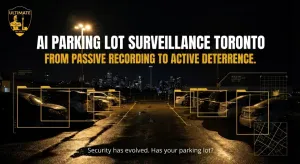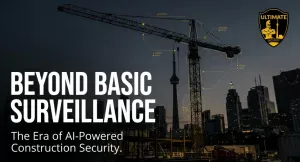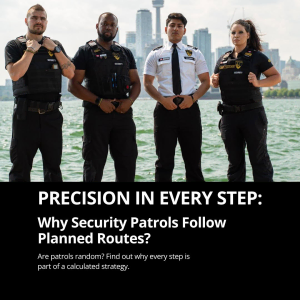Parking in Mississauga is becoming more of a challenge as the city continues to grow. More cars on the road mean fewer available spaces, and that often leads to confusion and frustration over parking rules. To keep things orderly, the City of Mississauga has Parking Enforcement Officers who handle street regulations, such as overnight bans and time limits. At the same time, private security agencies play an equally important role by enforcing rules on residential complexes, condominiums, and commercial lots. Understanding Parking Enforcement Mississauga is crucial for all drivers.
This is where Ultimate Security Services comes in. Our team works with property owners and managers across Mississauga to make sure parking rules are clear, fair, and properly enforced. For residents, understanding your rights is key as city-issued tickets can be disputed through the proper channels, and on private property you must always be informed of the posted rules before any action is taken. With the right knowledge and support from a professional security partner, parking compliance becomes less of a hassle and more of a shared responsibility between drivers, property owners, and enforcement agencies.
Parking Enforcement Mississauga ensures that regulations are followed and provides clarity in all parking situations.
Parking Challenges in Mississauga
Parking in Mississauga is getting harder to navigate. As the city grows and more people use the roads, available parking spots are tighter, rules are changing, and enforcement is stepping up. That matters whether you are a resident, a visitor, or a property manager. Below I break down the main challenges and what they mean for you.
- Higher demand from growth and new development. New housing and more residents have increased the number of vehicles competing for on-street parking and lot spaces. That has pushed the city to rethink how it manages parking supply and demand.
- Clear rules, but inconsistent experience. Mississauga has city rules like a no on-street parking period from 2 a.m. to 6 a.m., and a general five-hour limit on most streets. Those rules are meant to keep streets safe and usable, but drivers still run into mixed signage and inconsistent application from place to place. Knowing the bylaws can prevent surprises.
- More active enforcement and higher penalties. The city recently updated enforcement and fine structures to improve compliance, so fines for many parking offences increased in 2025. That makes it more important to follow posted rules and keep records if you need to dispute a ticket.
- Construction and seasonal constraints reduce supply. Ongoing construction, development projects, and seasonal rules such as winter parking restrictions limit available spaces at different times of the year. That can push drivers into illegal or unsafe parking, which hurts neighbourhood access and safety.
- Policy change and community engagement are underway. The city is running initiatives like Parking Matters 2.0 to rethink parking delivery and make changes based on resident feedback. Expect policy shifts as Mississauga tries to balance growth, accessibility, and traffic flow
Understanding Enforcement Roles
Parking enforcement Mississauga is handled by two different systems, and knowing who does what can save you time and money. On one side, City of Mississauga Parking Enforcement Officers manage public roads and city lots, enforcing bylaws such as the on-street five hour limit and the year-round overnight restriction from 2 a.m. to 6 a.m. These officers issue municipal penalty notices and follow a formal process that includes options to dispute tickets through the city.
The city’s approach to parking is also evolving. Projects like Parking Matters 2.0 are looking at how Mississauga manages on-street permits, fees, and technology so the system works better as the city grows. That means municipal enforcement is increasingly data driven and tied to wider parking policy changes, so staying aware of city updates matters if you manage property or park regularly.
Private parking enforcement covers a different ground. Condos, apartment complexes, commercial lots and business plazas rely on licensed private security or parking companies to make sure posted rules are followed. In Mississauga private officers can use official penalty notice booklets for private property enforcement, and they work under the property owner’s posted rules. If towing becomes necessary, recent provincial reforms and the Towing and Storage Safety and Enforcement Act set out stricter licensing, transparency, and consumer protections that both property managers and enforcement companies must follow.
Because private enforcement happens under provincial rules, personnel must be properly trained and agencies must be licensed. Ontario requires new security guards to complete mandatory training and pass the provincial test before they can be licensed, and agencies must meet registration, record keeping, and supervision rules. That training matters when disputes arise, because well trained officers document incidents, follow lawful procedures, and reduce the risk of contested actions. Ultimate Security Services puts that training and process to work for Mississauga property owners by advising on clear signage, managing permit systems, providing licensed on-site staff, and keeping transparent records to help resolve disputes quickly and fairly.
Ontario

Important Parking Bylaws to Know
Understanding parking bylaws in Mississauga will save you time and money. On most city streets you cannot park between 2 a.m. and 6 a.m., and the general on-street time limit is five hours unless signage says otherwise. These limits exist to keep streets safe, allow for traffic flow, and make snow clearing possible. If you park in violation of those rules you can receive a municipal penalty notice and, in some cases, your vehicle can be towed.
Accessible parking spaces are protected by a dedicated city bylaw. Only vehicles displaying a valid accessible parking permit, plate, or placard are allowed to use those spaces. Misusing an accessible stall can lead to heavy fines and fast removal, because those spots are essential for people with disabilities to access services and buildings.
There are several other common restrictions to watch for. No parking is enforced in fire routes, in front of driveways, on sidewalks, and in school zones or bus stops. Seasonal rules also apply. During winter and major street maintenance, the city may suspend parking on certain streets to allow plows and crews to work, and temporary no parking signs will be installed in advance. In high-traffic areas and the lakeshore, Mississauga has recently increased penalties for specific offences, so the financial cost of mistakes is higher than it used to be.
Towing and vehicle storage are regulated provincially and have strict requirements for licences, record keeping, and transparency. Tow operators and property managers must follow the Towing and Storage Safety and Enforcement Act and related rules before removing a vehicle, which protects owners and ensures the process is lawful. If your vehicle is towed, you should receive clear information about where it was taken and how to retrieve it.
Ontario
If you get a municipal ticket, the City of Mississauga lets you dispute it through an online screening process. There are deadlines to follow, so document everything right away: take photos of the scene, keep receipts or permits, and note the officer’s ticket details. Clear evidence and timely action improve your chances of a successful appeal.
For property managers and condo boards, consistent signage and a transparent permit system reduce conflict and repeat offences. Ultimate Security Services helps clients audit their parking rules, recommend compliant signage, provide licensed on-site staff, and maintain incident records to make disputes easier to resolve. Working with a professional parking partner also ensures any towing or enforcement actions meet provincial and municipal rules, lowering your risk and protecting residents.
Rights on Public Property
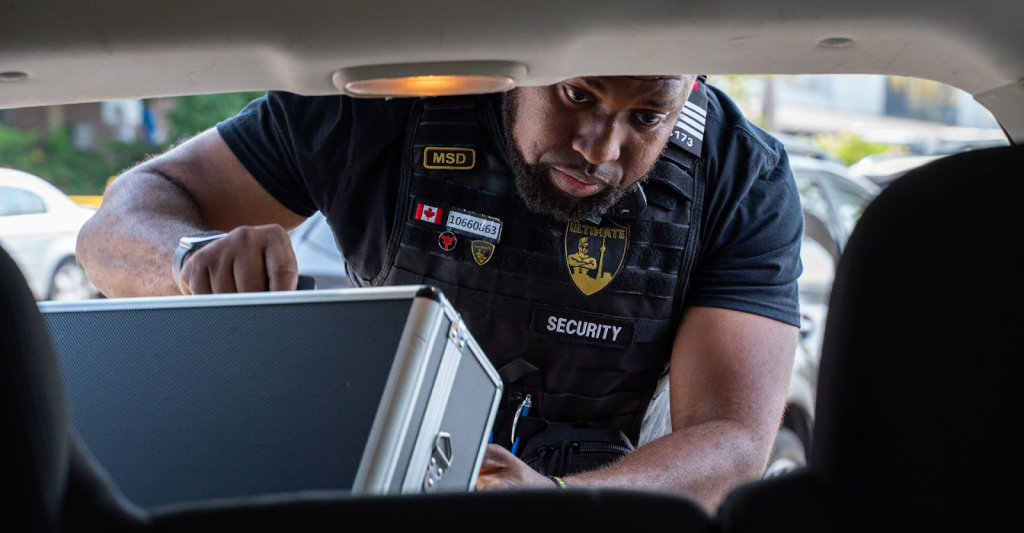
When you receive a parking ticket on public property in Mississauga, it is important to understand the details included on the ticket. This should state the time, date, and nature of the violation. If you believe the ticket was issued incorrectly, you have the right to dispute it. The City has a screening process where you can contest these tickets, and it is important to act promptly, as there are specific deadlines for filing your dispute and attending hearings.
If you want to gather evidence to support your case, you can request photos taken by the enforcement officer and any notes they made during the incident. Having this information can be crucial in making your case stronger. Additionally, keeping thorough records of all tickets you receive can help you track patterns or recurring issues that might arise.
During the enforcement process, you are entitled to fair treatment. This means that all procedures should be followed correctly and that you are not subjected to any form of harassment or undue pressure. Understanding the role of the City’s screening process can give you insight into how your dispute will be handled.
There are also resources available for residents looking to learn more about their rights concerning parking enforcement. The City’s website offers guides and FAQs that can clarify your options. Common reasons tickets can be dismissed include errors on the ticket itself or if proper signage was not displayed indicating parking regulations.
For those who find the dispute process overwhelming, support services are available. These organisations can assist you in understanding your rights and navigating the appeals process effectively.
Rights on Private Property

Property owners have clear rights when it comes to managing parking on their lots, but rights only work well when rules are obvious. Post visible, unambiguous signs that explain permitted parking, permit rules, towing conditions, and any applicable fees. When a vehicle is ticketed or towed from private property, drivers must be told who is enforcing the rule, what the charge is, and how to retrieve their vehicle. That basic transparency prevents confusion and reduces parking conflict when things go wrong.
Good documentation matters. Property managers should record violations with photos, timestamps, and the name of the responding officer or company. Those records make disputes easier to resolve and protect everyone involved. Residents also have rights: ask management how permit programs work, check posted rules, and report any enforcement practice that feels unfair. When concerns are raised, having a clear, documented process for review keeps issues from escalating.
Private enforcement operates under provincial rules and local expectations, so it must be fair and lawful. Ultimate Security Services helps property owners get this right: we audit parking policies, recommend compliant signage, run permit programs, and provide licensed, trained staff who document incidents professionally. That means fewer repeat offenders, clearer communication with residents, and defensible records if a dispute ends up in a formal appeal.
Ready to remove parking friction at your property? Contact Ultimate Security Services for a free parking audit and a custom enforcement plan that protects residents, reduces complaints, and keeps your lot working as it should.
Frequently Asked Questions
What should I do if I receive a parking ticket I believe is unfair?
If you think the parking ticket is not justified, you can appeal it. Start by gathering any evidence, like photos or witness statements. Then, follow the instructions on the ticket for submitting your appeal, ensuring you do so within the stipulated timeframe.
Can I contest a parking ticket if I was not the driver at the time?
Yes, you can contest a parking ticket even if you were not driving. However, you will need to provide proof of who was driving the vehicle, such as a statement or other evidence, to support your case.
What are the rules about parking in disabled spaces?
Disabled parking spaces are reserved for those with a valid disabled parking permit. It’s important not to park there unless you have permission, as doing so can result in fines and penalties.
What should I do if I feel harassed by a parking enforcement officer?
If you feel harassed by a parking enforcement officer, remain calm and collect information about the situation. You can report the incident to their supervisors or the appropriate local authorities to address your concerns.
Do parking enforcement officers have the right to take photos of my car?
Yes, parking enforcement officers can take photos of your vehicle as part of their duties, especially to document any violations or evidence supporting the issuance of a ticket.
TL;DR Parking challenges in Mississauga are common due to growing populations and urban development. City officers enforce regulations on public roads, while private security agencies manage parking on private properties. Key bylaws include overnight parking bans and five-hour limits on streets. Residents have the right to dispute tickets on public property and must be informed of rules on private property. Hiring professional security services can ensure consistent enforcement and resolve conflicts. Understanding your rights is essential for both residents and property owners.
